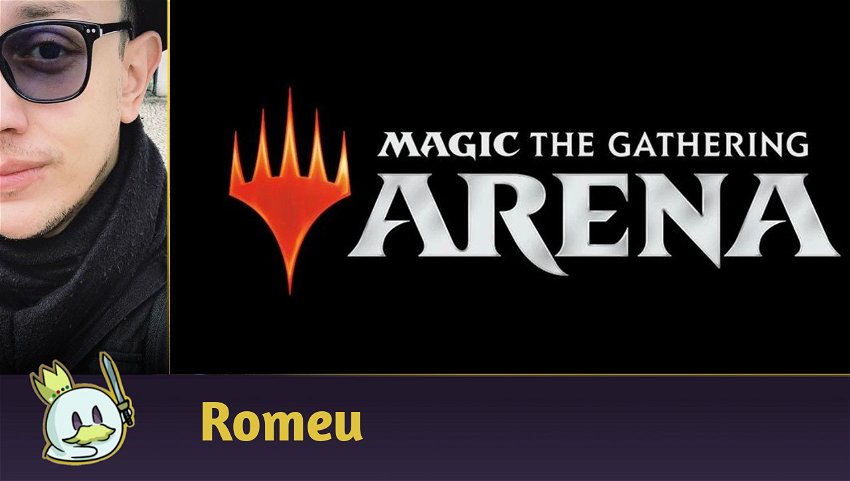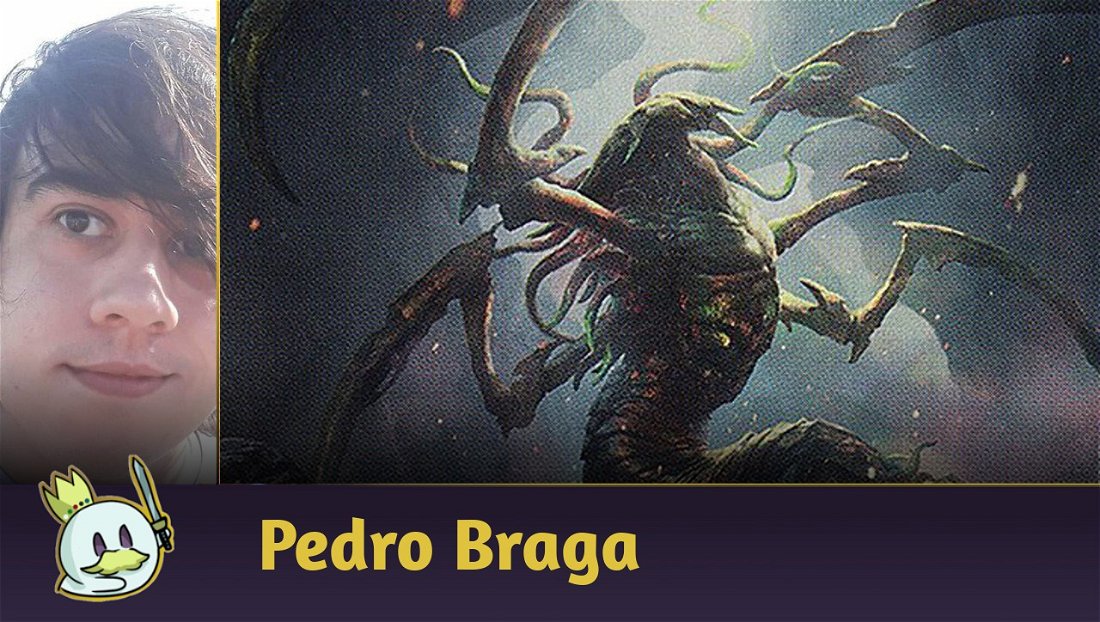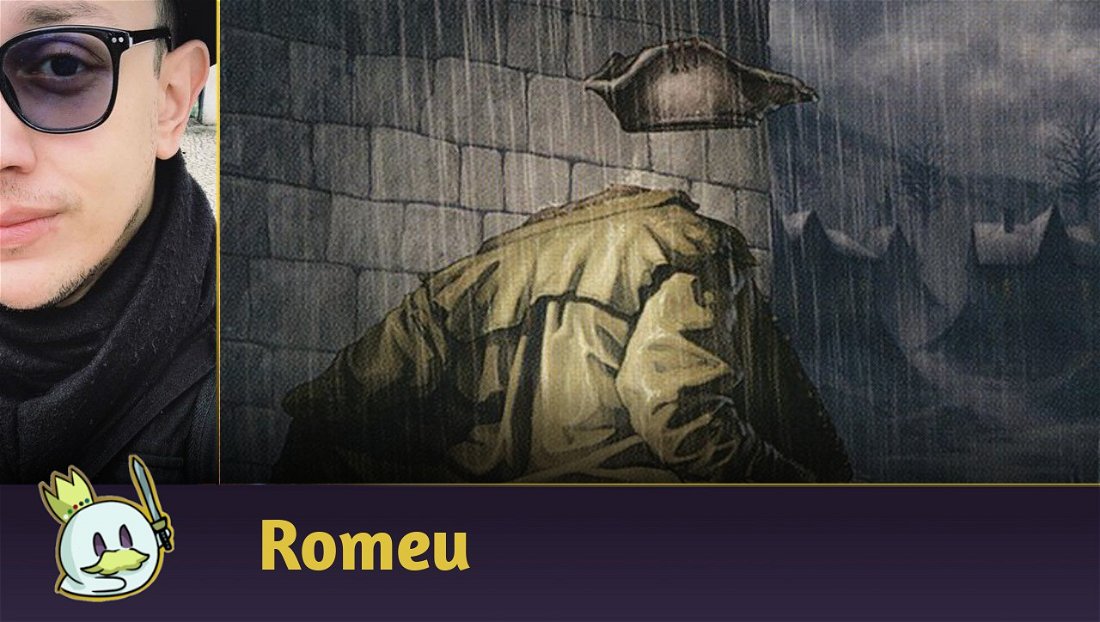Magic Arena has a wide variety of competitive formats for players to compete against each other. However, when it comes to the modalities, it has the Best of Three, which is based on the classic concept of a Magic: The Gathering match where players can switch maindeck and sideboard cards after the first game, thus adapting their list for that particular matchup, and the Best of One, which on the other hand, seeks a faster and more objective proposal for those who don't have that much time to invest up to 50 minutes in the result of a match, being closer to what we see in other digital TCGs like Hearthstone or Legends of Runeterra.
Today's article seeks to bring an overview of the Best of One environment in Magic Arena, leaving aside the Metagame and the individual recommendations of each format to focus on the standards we found in this modality and how to thoroughly prepare for them.
Why Play Best of One at Magic Arena ?
An old-school player, used to Magic's local stores, tournaments, and events, would probably find the idea of playing just one game without sideboards strange, since there are several factors that are defined by the decisions you make after the first game and how those fifteen cards from your sideboard change your deck's posture. And considering that most of the big tournaments in Arena are also Best of Three, why should we bother playing Best of One?
Games Are Faster
The main reason is that not everyone has enough time to invest more than ten to twenty minutes in a match. Whether you're on public transport, at lunch, resting at work or waiting in line, having the possibility to play a quick and inconsequential match if you have to concede the match immediately is great.
It's Less Tiring
Both because the games being faster and due to the absence of sideboards, Best of One requires less mental effort for players when they seek to move up in ranked matches.
It Rewards Smart Decisions Against the Metagame
The Best of One tends to reward strategies that are fast and/or have guaranteed a free win button. Therefore, it is necessary to think outside the box to evaluate how to deal with these situations without needing to use very specific options in the maindeck that would normally belong to the Sideboard.

A very generic example is Nine Lives, an enchantment that stars a combo deck with Solemnity in which all damage done to the enchantment's controller is permanently prevented, creating a lock. However, a card like Bonecrusher Giant's Stomp, which doesn't allow damage prevention, manages to bypass this restriction, managing to win the game on its own against an inattentive opponent.
Choosing a Deck for Best of One
This section tends to vary depending on the format you're proposing to play and what strategies are available in it, but Best of One tends to reward certain archetypes and game proposals over others.
Generally speaking, fast decks like Aggro or Combo tend to gain a strategic advantage until the rest of the Metagame adapts to them - then they become much less viable because everyone is using specific answers to deal with them. In this case, the best options are those decks that can play around moderate hate and/or those that have a game plan that is highly adaptable to the surrounding scenario.
On the other hand, Control tends to get punished severely because they don't have the appropriate answer for everything in a 60-card list, and even in variants with Yorion, Sky Nomad, it's hard to find all the options you need at the right timing when a sizable portion of the format is trying to play underneath you.
Midranges tend to be decent options if built to handle the best decks. Typically, they require a wider choice of low-cost spells against creatures to deal with Aggro and a decent disruption package to delay Combos. However, due to the need to allocate so many resources to these games, they are usually preyed upon by Control, as they have an efficient clock against them.
But how exactly should we choose our list for the Best of One? There are three general rules that I follow.
The Best Free-Win Button
The "free-win button" is a term I often use to represent a certain move that will put you so far ahead that it will virtually win you the game, regardless of the events that preceded it. Two classic examples are Embercleave and Greasefang, Okiba Boss.

Greasefang is currently one of the best Explorer decks due to its ability to win the game as early as the second turn by dealing thirteen damage and leaving two 4/4 Angel tokens on the board to deal the remaining amount in the next turn. It's probably the most hated Best-of-One strategy today because it's the pure definition of winning a game with little or no effort if all the pieces line up at the right timing, and it hardly depends on the matchup's development to define your victory. This same pattern is found on other cards such as Muxus, Goblin Grandee.
Mono Red Aggro was by far the most efficient Best-of-One Aggro in the time Embercleave was legal in Standard, basically because if you followed the proper sequencing, unless your opponent responded with a sweeper in the first few turns, it was likely that you would play the equipment for a low cost and deal enough damage to win the game or take it to the point of no return in which any burn from your hand or topdeck would finish the job.
Strategies with this trait tend to be excellent until opponents start dedicating too many slots to answering them and/or strategies that prey on these archetypes become more popular. They catch any player off guard and feed on any deck that dares not to respect their game plan.
The Most Adaptable Deck
This slot typically belongs in a Midrange, where a player can make smart maindeck trades for more efficient pieces against the current trending strategies.

In a universe without sideboards, it's necessary to understand where the Metagame is and add or remove pieces as needed. For example, while Bonecrusher Giant is a great threat and also a cheap removal, Liliana of the Veil is a more interesting option if you're facing a lot of attrition matchups and/or strategies that protect their creatures against targeted removals, like Auras, for example.

By having an extremely solid core and an efficient game plan, the Midranges' flexible slots tend to make room for its controller to have all the pieces it needs to handle X, Y, and Z decks, but at the expense of perhaps losing more often for decks A, B and C, and exercising this Metagame reading is essential in the Best of One environment.
The Fastest Deck
In Best of One, playing under is very rewarding. Not only they allow you to race against your opponents' bad keep decisions, but you can also enjoy more games because they tend to take less time to define who is the winner or loser.
Also, disruptive Aggro like Humans or Tempo lists like Mono Blue Spirits are decent options for punishing greedy strategies while to are also more resilient in prolonging the game thanks to cards like Curious Obsession and Collected Company or Adeline, Resplendent Cathar.
The Efficient Rogue

Rogue decks are non-prevalent archetypes who get some results precisely because no one usually prepares too much for them. Examples of this are combos that rely on too many pieces like Song of Creation, or lists that were successful in past Standard seasons like Four-Color Ultimatum, or tribes that are popular but too vulnerable to a significant portion of the Metagame, like Elves.
The advantage of these strategies is that just like the best free-win button or the best aggro, they try to execute their own game plan, and it's up to the opponent to be faster and/or interact appropriately. If they fail to execute any of these two plans, we are likely to win the game, and as they are not usually popular, players don't always have the right answers to deal with them.
Playing Best-of-One Matches
In addition to choosing the deck, the posture to be taken during the Best of One game differs in some points in relation to the Best of Three, and understanding how to behave in them matters as much as the cards present in your list.
Stick to the Plan
It's difficult to identify which strategy your opponent will adopt unless they are running a specific Companion. In Best of One, trying to rely on the possibility of what the opponent is playing to set your keep is far more punishing than in Best of Three for obvious reasons.
So during your keep, consider how you might execute your game plan with the cards you have, and the more consistent your options are in that case, the more likely your hand is worth keeping. But there is a small exception that we must consider in some cases:

If you are running a combo or if your hand is weak or depends too much on a certain card, mainly on the draw, it is pertinent to consider the impact that a Thoughtseize on the first turn can cause you. If your starting hand is too fragile against this early game interaction, chances are you'll waste multiple turns trying to find the discarded piece again.
Value Your Time
Except for major tournaments, Metagame Challenges and community events, Magic Arena does not value or evaluate the quality of the plays, but the number of games in which you participate. There's an adage that you will inevitably reach Mythic if you play enough ranked games, and valuing the time invested in this endeavor is essential not only for the best out of the platform, but also for your mental health.
Therefore, avoid prolonging games too long by running decks that don't win games, like the aforementioned combo between Solemnity with Nine Lives because you're at the mercy of your opponent's goodwill to concede the game to you, and if they have an out for this strategy, they will prolong the game until they find it in case they have enough time to do so.
The same goes for infinite loops: unless they generate a process that will eventually lead to an immediate victory, know when to stop them and avoid wasting too much time repeating the same play pattern. It can be super fun to create 255 Squirrel tokens or hundreds of copies of Scute Swarm, but neither method is practical for the purposes of playing the most games within your allotted time frame.
Know When to Quit
Still about saving your time, recognizing when the opponent has reached the point of no return is essential in Magic games, and trying to prolong the game when your outs to the situation are minimal or impossible is a bad decision.
While there are advantages to prolonging matches in Best-of-Three to gain more knowledge of your opponent's list and how to sideboard in the next game, in Best-of-One that decision usually involves finding a key card or answer that can get you out of that one situation, and if your opponent has already stabilized their plan to the point of being way ahead, there are rare situations where an accurate topdeck will guarantee you the game.

A classic example of this is against Control: if your board is empty and your opponent has a Teferi, Hero of Dominaria in play and plenty of cards in hand, unless you have in your hand a means to reverse things by killing Teferi and/or putting a big threat on the battlefield, they will just accumulate more value each turn until they reach inevitability with the Planeswalker's last ability from the moment they untap with him. In this situation, extending the game just means suffering a little more in the hand of a Control and wasting more time that could be better used in the next game.
Respect Your Limits
Remember: Magic is just a game and a hobby. And if it's not working for you, continue the next day.
Is the opponent's deck annoying? Is the situation at the board disgusting to play? Have all your cards been countered while they're hitting you with a Mausoleum Wanderer? Did you take a Mulligan to four in the last two games? Played against that annoying combo three times in a row? In those moments, ask yourself if you're still having fun. If the answer is no, conceding the match and preserving your patience and mental health for the next one is better than stressing yourself out over a frustrating moment.
That way, you preserve your good relationship with the game, with yourself and with the experience you have when opening Magic Arena. Ranked games are just games, and the path to high-level Magic is paved in many ways, and you don't need to be saddled with the "high-level dream" to enjoy the playing Magic.
Respect your time, your patience and your good and bad emotions. That goes for both Best of One and Best of Three, whether in Magic Arena or tabletop.
Conclusion
That's all for today.
Best of One brings a unique experience to Magic Arena that is lacking in the tabletop environment. Its game mode is practical, efficient, useful for people with more time constraints and very attractive for more casual players.
If you are interested in learning more about some decks and strategies for this format, leave it in the comments, and we will provide articles about it.
Thanks for reading!













— Comentarios 0
, Reacciones 1
Se el primero en comentar